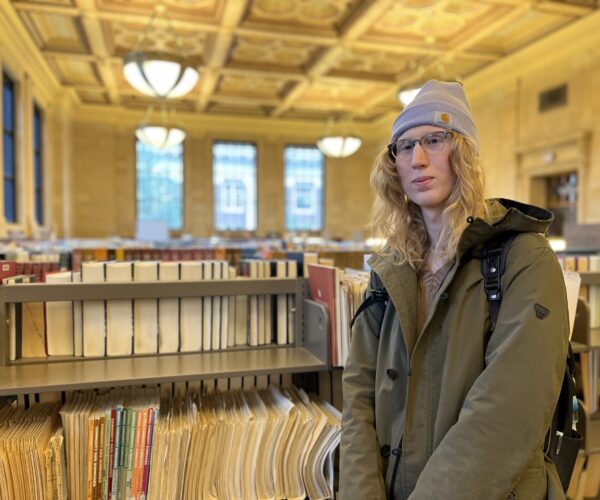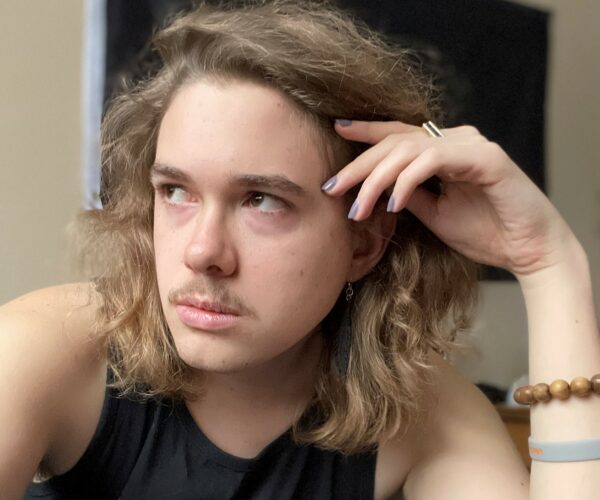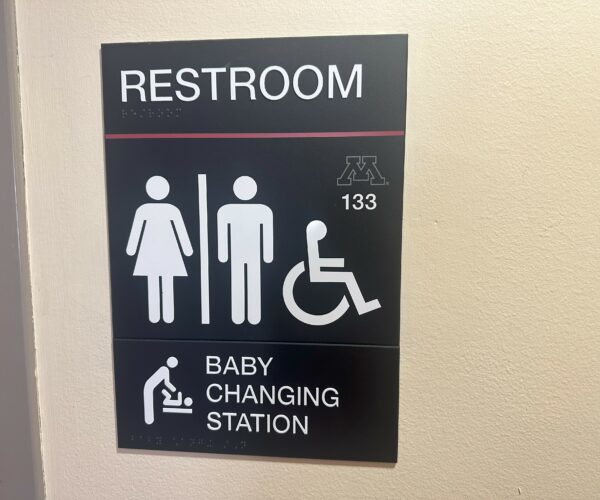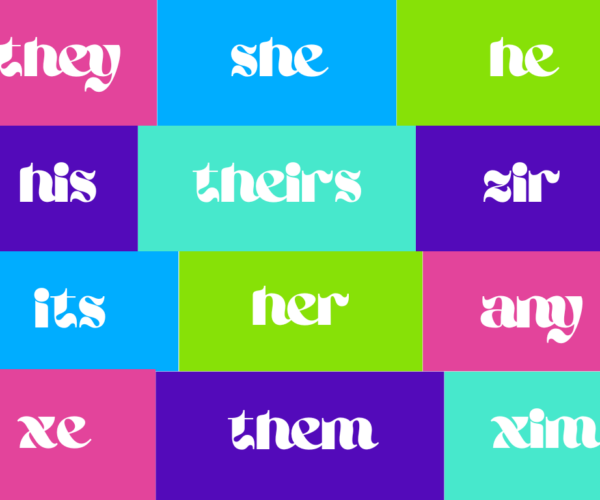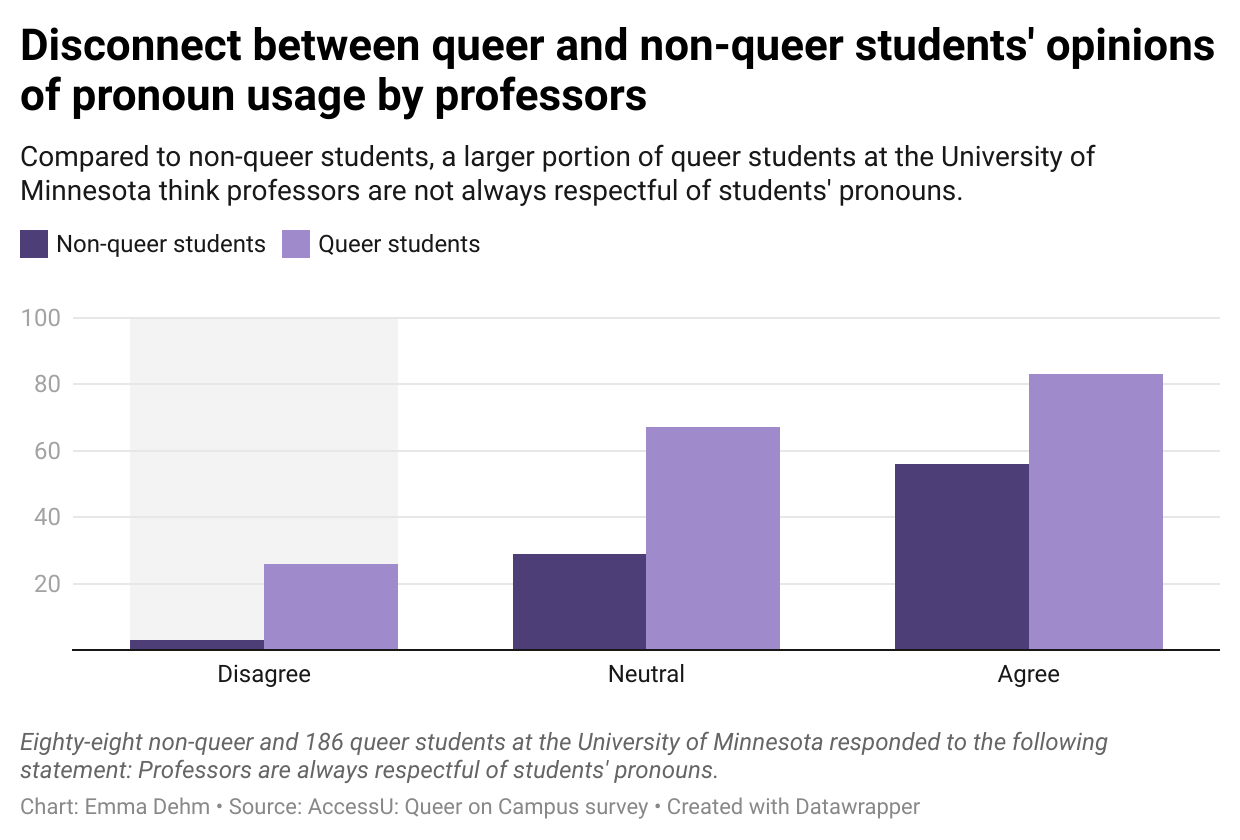By Emma Dehm and Maia Irvin
The University of Minnesota community — from faculty interactions to housing options — is an overall accepting, respectful and safe environment for LGBTQ+ students, according to a recent AccessU: Queer on Campus survey.
But queer students indicated some areas could improve, including how sensitive professors are about using a student’s preferred pronouns.
The survey, conducted in March, asked questions about the Twin Cities campus’ LGBTQ+ resources and support of queer students as well as the general campus environment for LGBTQ+ communities. It was sent to about 4,800 undergraduate student emails at the University of Minnesota-Twin Cities and received 302 responses.
Due to the sample size and collection method of this survey, the findings are not statistically significant and therefore not representative of the student population as a whole. Rather, the survey should be considered a large questionnaire.
The survey produced several additional insights. Those include:
- Queer respondents registered more uniform and higher levels of concern about nationwide anti-LGBTQ+ legislation than non-queer students.
- Queer students see the University community as less welcoming, safe and respectful toward LGBTQ+ communities than non-queer students.
- All students cite a lack of LGBTQ+ material in University courses.
- Many students, especially non-LGBTQ+ students, say they are unaware of on-campus University resources for LGBTQ+ communities.
- Queer students appear to handle financial strain differently from non-queer students, taking out more loans and seeing the University as less supportive than non-queer students.
Comments reveal a friendly veneer for queer students with harsher realities underneath
The survey also collected 57 comments from respondents, many of which reflected particular concerns about insensitivities to queer needs, such as in housing, with peer interactions or from professors. Many comments praised the University for being a safe haven where queer students can easily find support and validation, though comments indicated this varied among colleges.
Overall, comments suggested a dichotomy at the University about queer support — with some praising the institution as a model of friendliness and others noting this facade hid the campuses’ darker attitude about LGBTQ+ issues.
“I think we are certainly one of the most LGBTQ+ friendly schools (of our size) in the Midwest, and I think the Twin Cities as a queer oasis in the Midwest plays a big role in a lot of students’ decision to attend here,” wrote one survey respondent.
Another survey respondent took a different view: “Front facing the U is a safe haven in the Midwest for queer folks, but if you quietly listen to other students joke and be casual with each other you would notice how bad the student body is…These people truly embody the type of Minnesotan that I grew up around, friendly on the surface but sad balls of hate, misogyny and racist fanboys.”
In the end, wrote another, the differing perspectives may simply stem from the nature of a large university: “I think it’s such a big school that the level of acceptance you experience is based on what groups you associate with and also just the luck of who you meet. One queer person might have a wildly different experience from others.”
Pronouns and the value of an an LGBTQ+-friendly campus
While many of the survey respondents said professors create an accepting space for queer students in the classroom, a larger percentage of queer respondents than non-queer respondents — 14% versus 3% — disagreed with the statement that professors are always respectful of students’ pronouns.
According to the University’s Gender Identity, Gender Expression, Names and Pronouns policy, approved in December 2019, students and other University members can choose whether to share their pronouns with other University members, including faculty. How to share that information is the individual’s choice.
Students can include their pronouns in their University email signatures and can specify their pronouns and other identity information in MyU. The policy encourages faculty to consult these designations and to use preferred pronouns.
“Using the specified names, pronouns and other gendered personal references of others conveys a basic level of respect for them and their identities … Regardless of how someone identifies, it is important to acknowledge, respect, and refer to them by their specified name and pronouns,” according to the policy.
The perception that professors needed to work on pronoun usage was not shared by most of the respondents who did not identify as queer. Many non-queer respondents agreed with the statement that professors are always respectful of students’ pronouns.
This was not the only area of disagreement.
Nearly all queer students who responded to the survey said a queer-friendly campus was very or somewhat important to them when they considered attending the University.
“For me, meeting and building relationships with other queer people has been the most important part of my experience at the U of M,” one respondent wrote. For those who are unable to make these connections, the university experience might not be as welcoming.
In contrast, many non-queer respondents said a queer-friendly campus was not important to them when considering attending the University.
All students cite a lack of LGBTQ+ materials in University curriculum
Regardless of their gender and sexual identities, the majority of respondents said they rarely or never encounter LGBTQ+ materials, such as readings and films, in class.
The University does not require instructors to include LGBTQ+ material in classes, nor does it require students to take courses specifically focused on LGBTQ+ topics and issues.
Degree-seeking students are required to fulfill liberal education requirements, which include designated themes. The University requires students to fulfill the Race, Power and Justice (RPJ) theme as well as three others; they can choose from Civic Life and Ethics, Technology and Society, the Environment and Global Perspectives.
Courses that fulfill the RPJ theme may focus on the structural inequalities facing marginalized groups in the United States, including sexual or gender orientation, as long as the course substantively integrates issues of racial justice. However, the RPJ theme is not required for students unless they were admitted during fall 2021 or later.
Many students are unaware of University LGBTQ+ resources
The University provides several resources for LGBTQ+ students on campus, including the Gender and Sexuality Center for Queer and Trans Life (GSC), the Queer Student Cultural Center (QSCC) and the Lavender House Living Learning Community.
Most queer respondents said they had heard of at least one of these groups. The Lavender House and GSC were the most well known.
However, many non-queer respondents said they had not heard of any of these resources.
Even though many respondents, especially among LGBTQ+ communities, had heard of these three resources, some suggested the University should show more material support for the work they do to support queer students.
“I know the GSC does not receive adequate funding and that queer student activism isn’t necessarily active,” one student wrote. “The U may be generally welcoming of queer students on a surface level, but I feel like consistent, tangible support is largely absent.”
The GSC received nearly $300,000 from the University for the 2023 fiscal year, according to a data request AccessU made to the University. This is about 4% more than what the GSC received for the 2022 fiscal year.
In the past three years, the QSCC has received most of the money the group has requested from the University, according to data from the Student Services Fee (SSF) Committee. The SSF Committee allocated $14,272 to the QSCC for the 2022–23 academic year; the group requested $15,611.
Queer respondents experience financial difficulty, say the University is less supportive
About one-third of all survey respondents said they have experienced unusual financial hardship during their college experience, but the way these respondents handled that difficulty differed.
A majority of queer respondents said they took out more loans, while a majority of non-queer respondents took on another job.
A report from the University of California-Los Angeles’ School of Law supports these findings on a national level. The report found that queer adults are more likely to have federal student loans than non-queer adults.
There also appears to be a difference in the level of University support queer students feel they receive when dealing with financial hardship compared to non-queer students.
Of those queer students that said they were struggling with finances, a majority of the queer respondents said when they struggled with finances, the University was not supportive. In contrast, many of their non-queer peers said the University was at least somewhat supportive.
Queer respondents register much higher levels of concern about anti-LGBTQ+ legislation
Minnesota has been deemed a sanctuary for many queer Americans because there is no active anti-LGBTQ+ legislation in the state. At times, the state has actively moved to protect rights.
In March, for example, the Minnesota House of Representatives passed a “trans refuge” bill that would prevent state courts or officials from complying with child removal requests, extraditions, arrests or subpoenas related to gender-affirming health care that a person receives in Minnesota.
By contrast, so far this year, 452 anti-trans bills have been introduced in legislatures across the country, establishing a new record, according to the American Civil Liberties Union.
The survey asked respondents to indicate their level of concern for five types of anti-LGBTQ+ legislative efforts: banning LGBTQ+ books, banning trans participation in sports, restrictions on drag shows, “don’t say gay” bills and banning gender-affirming care.
Once again, responses differed between queer and non-queer respondents. Queer respondents registered higher levels of concern about those state efforts than non-queer respondents.
Nearly all queer respondents said they are highly concerned about all five of the above efforts.
Most non-queer respondents did indicate some level of concern about these efforts. However, a significantly larger portion indicated no concern for the five categories compared to queer respondents.
Respondents who noted concern about anti-LGBTQ+ legislation in other states said in comments the actions elsewhere have a chilling effect on students here.
“Minnesota is doing better than most states,” one student wrote. “Still, it’s scary to see so many rights being taken away from our neighbors.”
The University has not issued a public statement on the plethora of anti-LGBTQ+ legislation nationwide.
“While we recognize concerns in our community about what's happening in other parts of the country or the world, we are focused on what the University can lead on our campuses,” University Public Relations Director Jake Ricker said in an email statement. “We remain appreciative that our elected officials and Minnesotans in general have supported policies that focus on building and maintaining a welcoming, inclusive and equitable environment in our state.”
Some survey respondents said they think the University should publicly state its position on national anti-LGBTQ+ legislation, even if it is not happening in Minnesota right now.
“I feel as though the University of Minnesota should be doing more to contribute to this effort,” one respondent wrote. “This is currently a fight to protect the lives of potential, current, and alumni students, faculty, and staff.”
